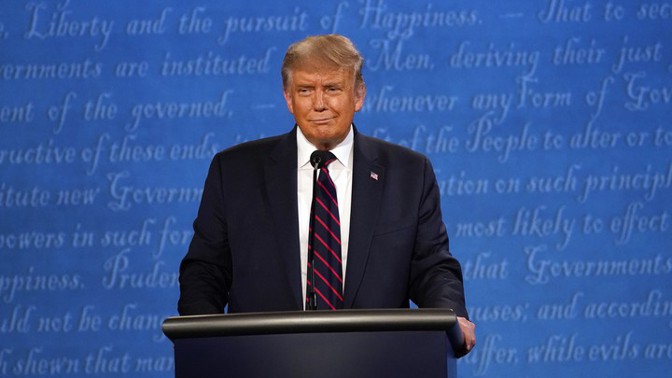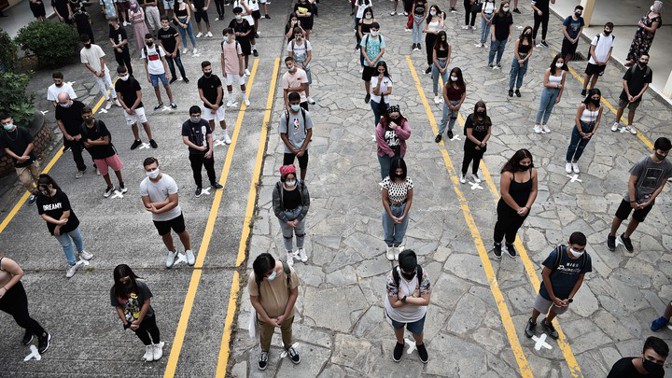Every weekday evening, our editors guide you through the biggest stories of the day, help you discover new ideas, and surprise you with moments of delight. Subscribe to get this delivered to your inbox.

Last night, the president refused to unequivocally condemn white supremacists and militia groups. When pressed, he said that members of the far-right group the Proud Boys should “stand back, and stand by.”
That delivery was no accident, our staff writer Emma Green argues. “In moments of direct confrontation, Trump refuses to state clearly that he condemns white supremacy,” she writes. “White nationalists notice, and remember.”
Meanwhile, the threat of far-right violence in America isn’t going away. Today, we published a new investigation into one right-wing militant group, the Oath Keepers—which was founded on the premise that law-enforcement officers and soldiers may, if necessary, refuse orders that they believe enable tyranny. And it has already recruited thousands of police officers, soldiers, and veterans.
More debate coverage from our writers:
-
It was a disgusting night for democracy, our long-time staff writer James Fallows argues.
-
Just cancel the debates, David A. Graham says.
-
The constant interruptions from the president were ugly—and all too familiar, Megan Garber writes.
-
We asked therapists to break down the toxic communication styles on display last night.

What to read to better understand the ongoing coronavirus outbreak:
This overlooked variable is the key to the pandemic, Zeynep Tufekci writes.
One question, answered: I can’t bike alone. Is it safe to ride with a friend?
James Hamblin responds in his latest “Paging Dr. Hamblin” column:
For all the volumes of research that have been published on COVID-19 so far, none has specifically focused on tandem bicycles. The Centers for Disease Control and Prevention has issued no guidelines. But we’re all making decisions based on imperfect information these days, and I think we know enough to confidently apply some other studies to your scenario.
Continue reading. Every Wednesday, James takes questions from readers about health-related curiosities, concerns, and obsessions. He’s also answered:
Have one? Email James at paging.dr.hamblin@theatlantic.com.
Today’s break from the news:
Gone Girl author Gillian Flynn is obsessed with conspiracy theories. Utopia, her new show for Amazon, explores the tricky relationship between fact and fiction.
Did someone forward you this newsletter? Sign up here.
Comments
Post a Comment